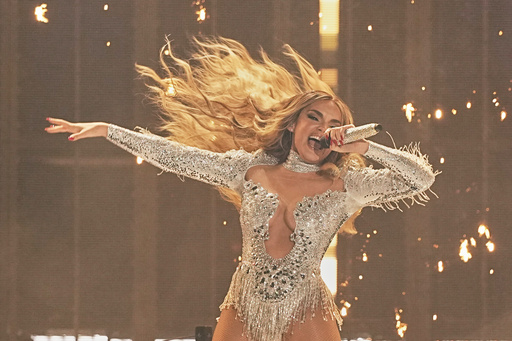As the 69th Eurovision Song Contest gears up for its grand finale in Basel, Switzerland, the event has already been filled with a mix of victory, emotional displays, rousing performances, and even political tensions. The St. Jakobshalle arena will host musical talents from 26 nations this Saturday, each vying for the coveted win in a celebration of song and spectacle that has both united and divided Europe since its inception in 1956.
The Eurovision Song Contest is a unique competition that sees performers from European countries—and occasionally some from elsewhere—compete under their respective national flags in a bid for continental glory. It’s often compared to the Olympics or the World Cup, except the focus is on musical prowess rather than athletic skill. Eurovision is a testament to the joyous, sometimes whimsical, unifying nature of music, albeit with undercurrents of political and regional rivalries.
Describing it as “Europe’s biggest cultural event,” Eurovision historian Dean Vuletic emphasizes the contest’s longevity and popularity, noting its role as a mirror reflecting the cultural zeitgeist of Europe through its innovative performances and flamboyant displays.
With 37 nations initially participating, only 26 have made it to the weekend’s final showdown. Public votes during the semi-finals earlier in the week eliminated 11 acts, leaving Switzerland as host, along with the “Big Five”—France, Germany, Italy, Spain, and the U.K.—whose financial contributions grant them automatic final placement. Competitors include representatives from Norway, Luxembourg, Estonia, Israel, and many more, with each act bringing its own flair to the stage.
Among the front-runners according to bookmakers is Sweden’s KAJ, with the lively song “Bara Bada Bastu” paying homage to the sauna culture. Other notable mentions include Dutch singer Claude, offering a soulful rendition titled “C’est La Vie,” Austria’s pop-opera star JJ, and Israeli hopeful Yuval Raphael, with her powerful anthem “New Day Will Rise.”
Despite its reputation for kitschy, fun europop tunes characterized by nonsensical lyrics, Eurovision has birthed lasting pop anthems and launched the careers of notable stars such as ABBA, Celine Dion, and the Italian rock band Måneskin. This year’s finalists feature a wide array of musical styles, from Lithuania’s emo rock group Katarsis to Spain’s bold balladeer Melody, reflecting the contest’s expanding musical horizons.
Reflecting the changing preferences of viewers, there is a growing demand for authenticity in entries. Engel Vuletic observes that the audience wants to see more than just standard English pop songs; they crave cultural insights reflective of the participating countries, a shift evidenced by entries in a record 20 different languages, including Icelandic, Armenian, and Ukrainian.
Selecting a winner involves a complex combination of fan votes, gathered through various communication modes, and assessments from music-industry juries within each competing nation. As the results unfold, emotions run high for both participants and their supporters, particularly for those facing the ignominy of scoring ‘nul points,’ or zero.
For those eager to follow the excitement, the finale is set for 1900 GMT (3 p.m. EDT) on Saturday and will be viewable via participating nations’ national broadcasters, on Peacock in the U.S., and on the official YouTube channel. Voting, except for one’s own country, is open to viewers in participating areas as well as to those watching from nonparticipating regions through online platforms.
While Eurovision professes a theme of unity through music, global tensions sometimes breach the surface. Following Russia’s 2022 exclusion due to its actions in Ukraine, the contest has had to navigate political sensitivities. This year, debates have persisted over Israel’s inclusion, prompting protests and calls for removal due to its actions in Gaza. The contest’s organizers have heightened security measures following incidents during rehearsals.


